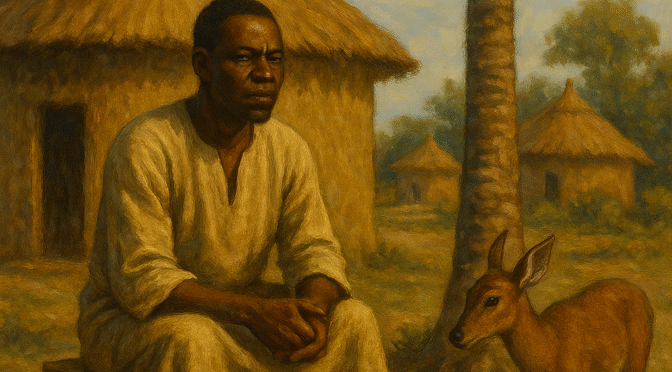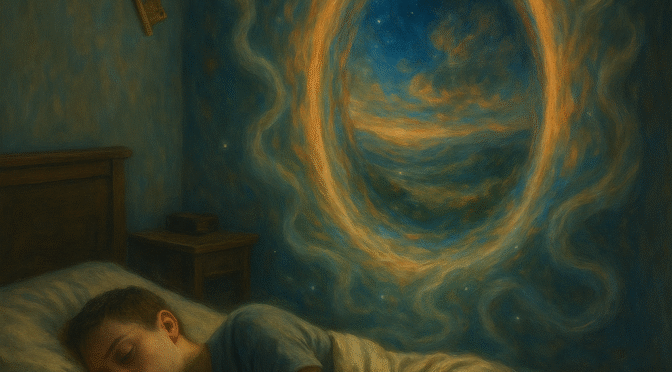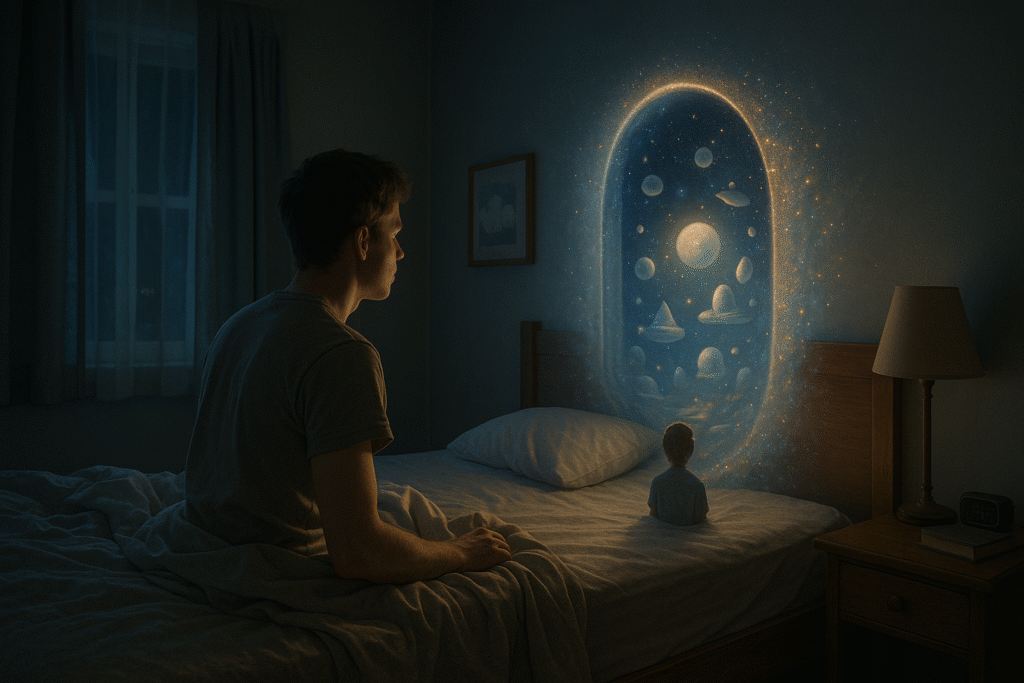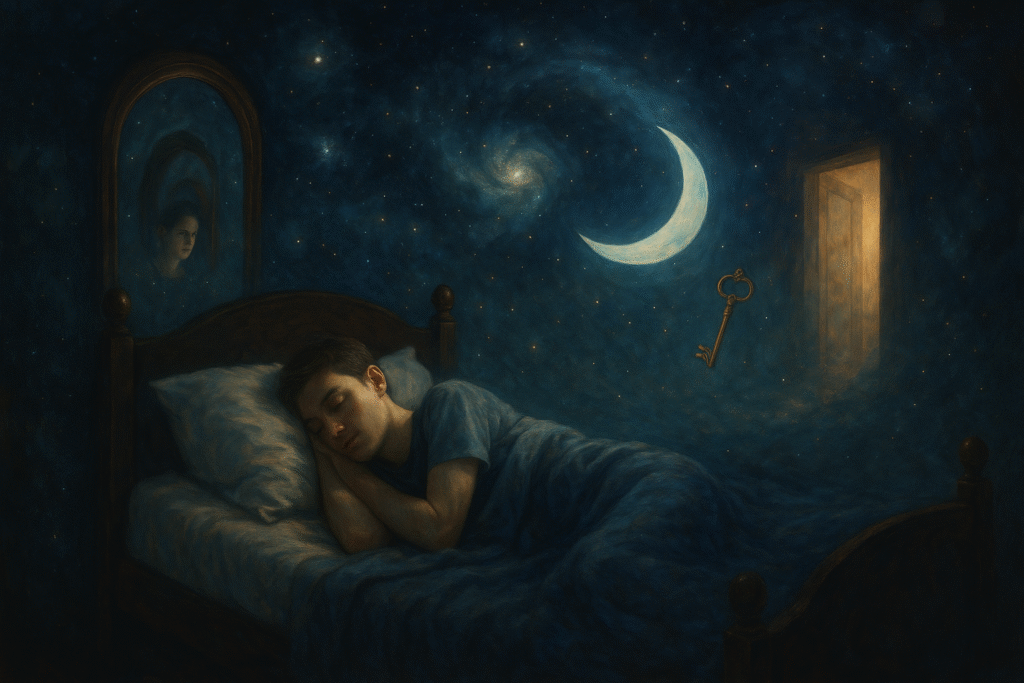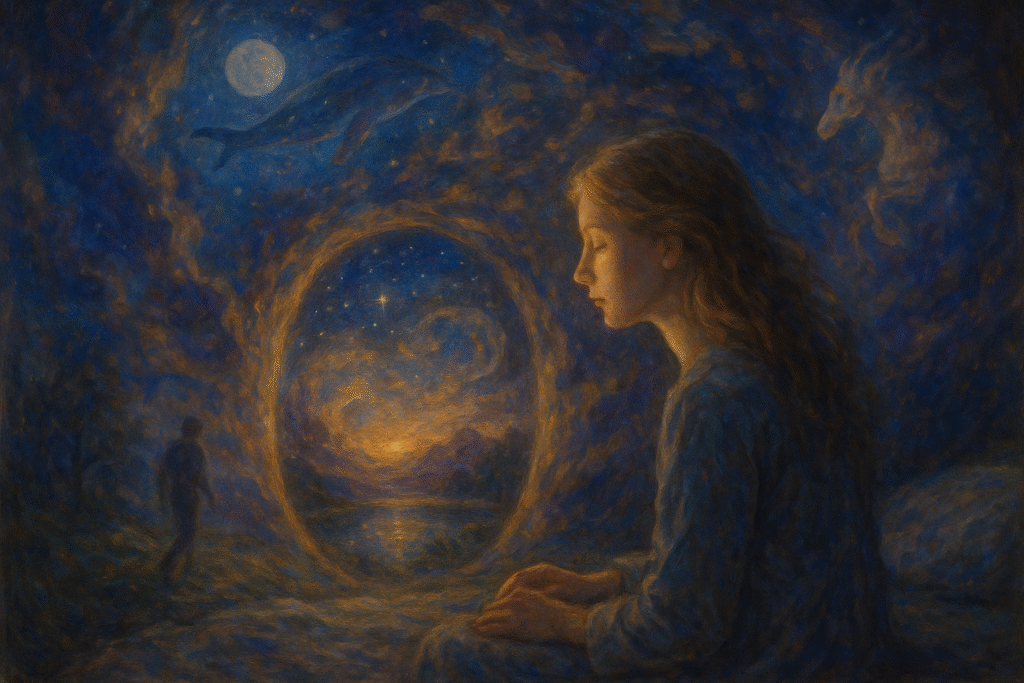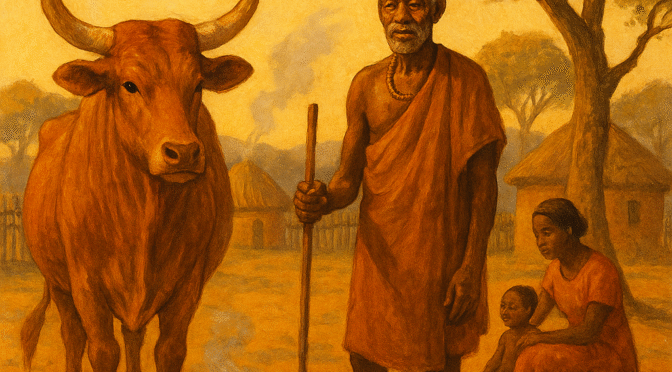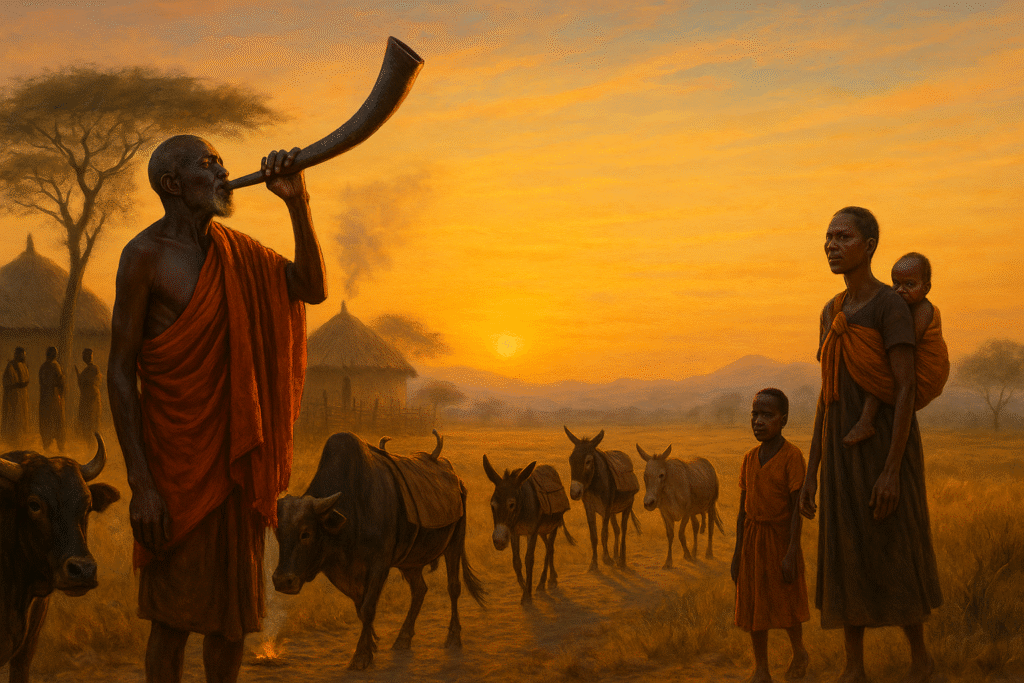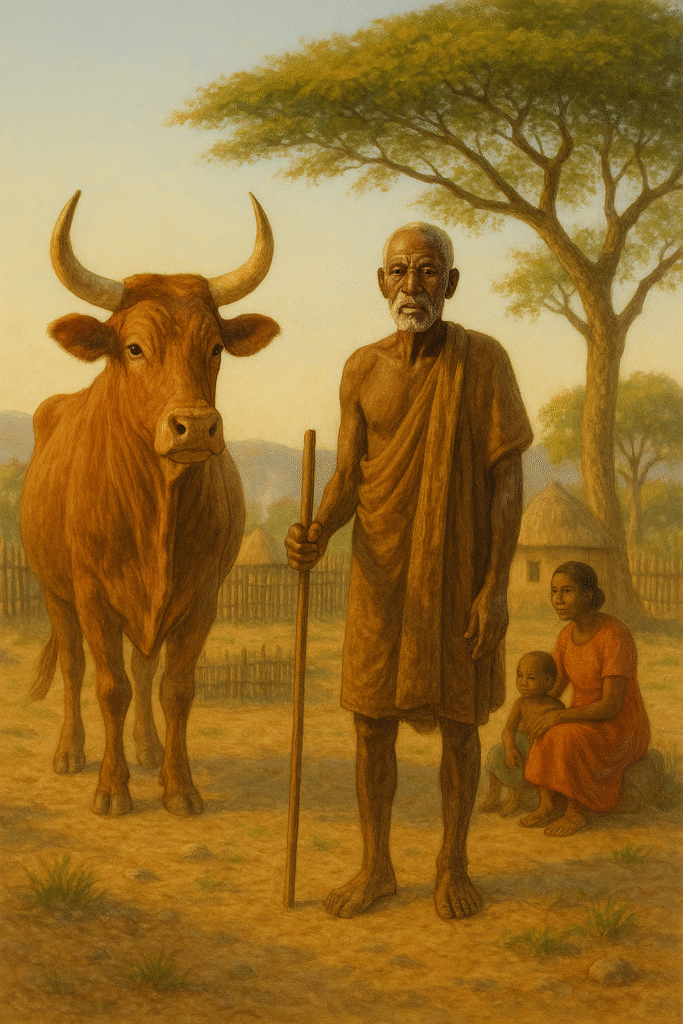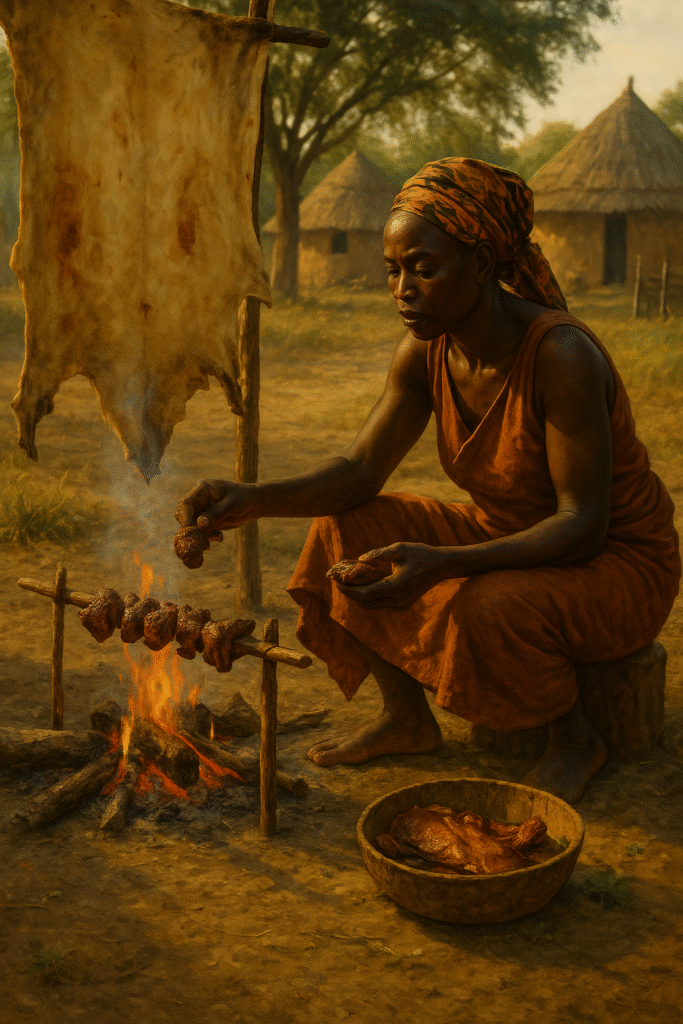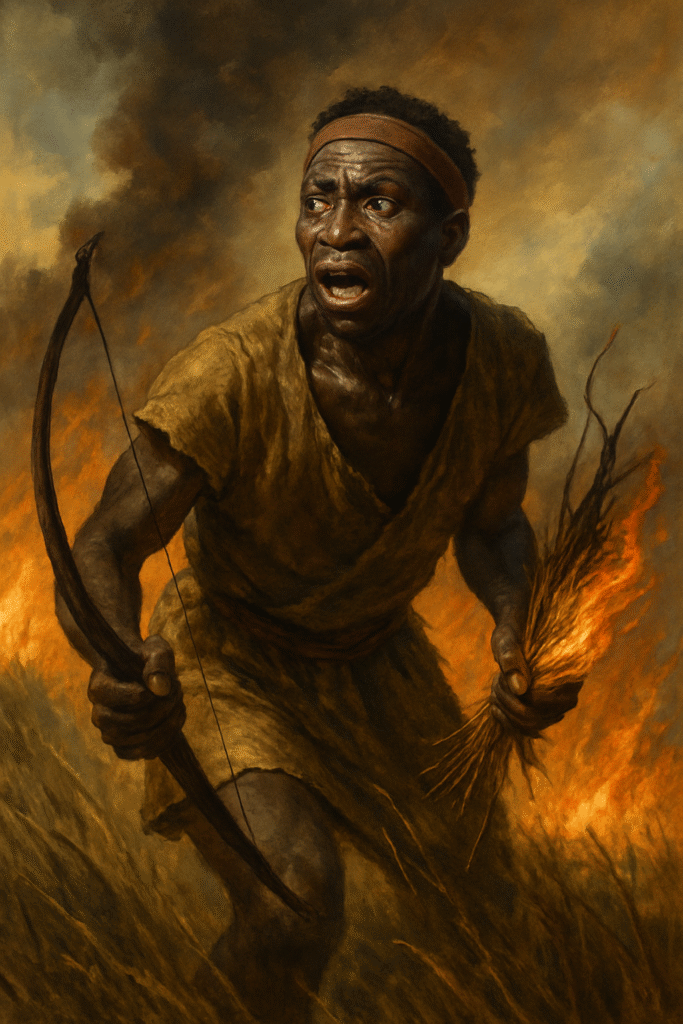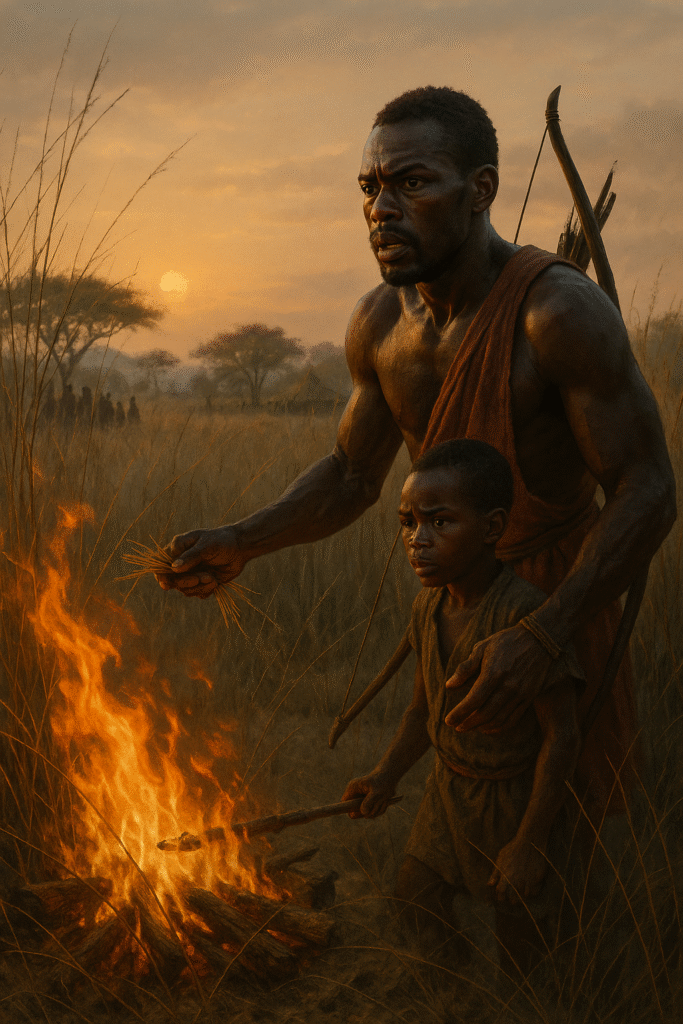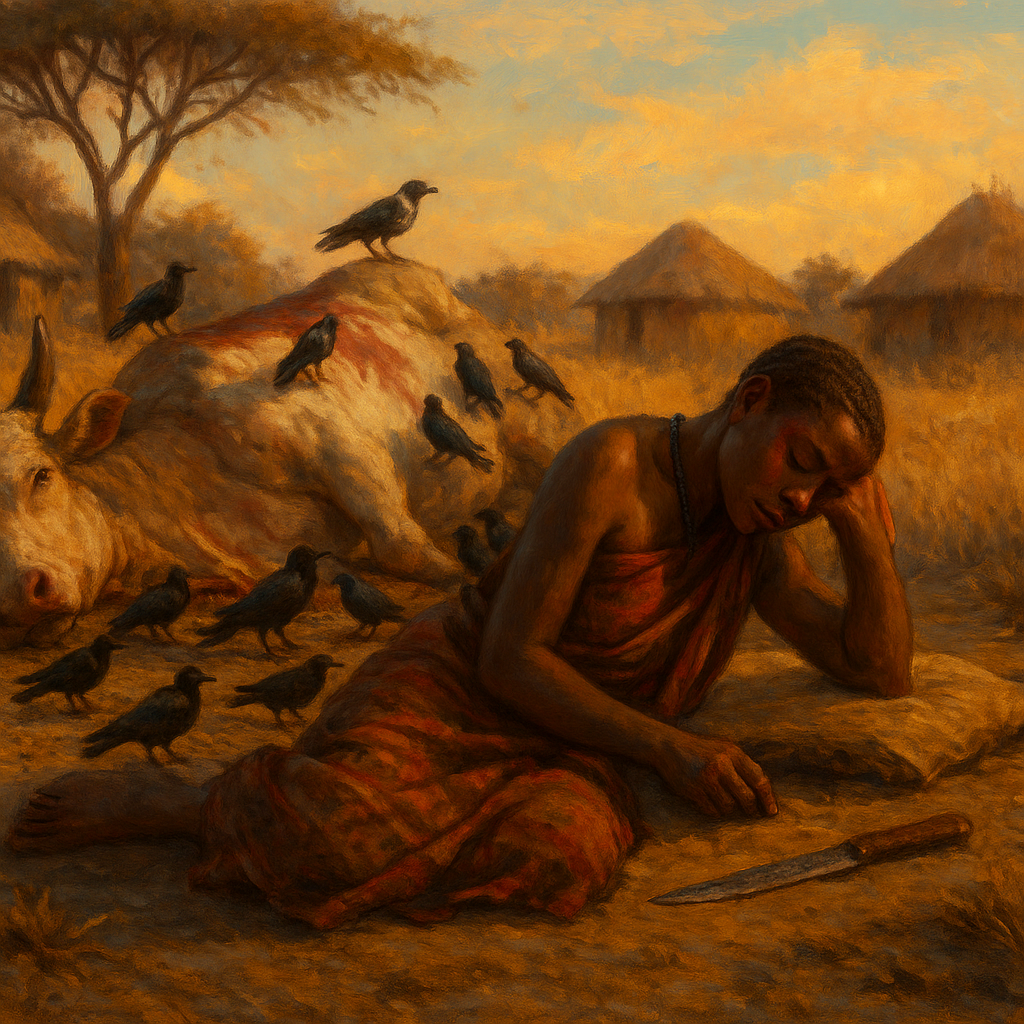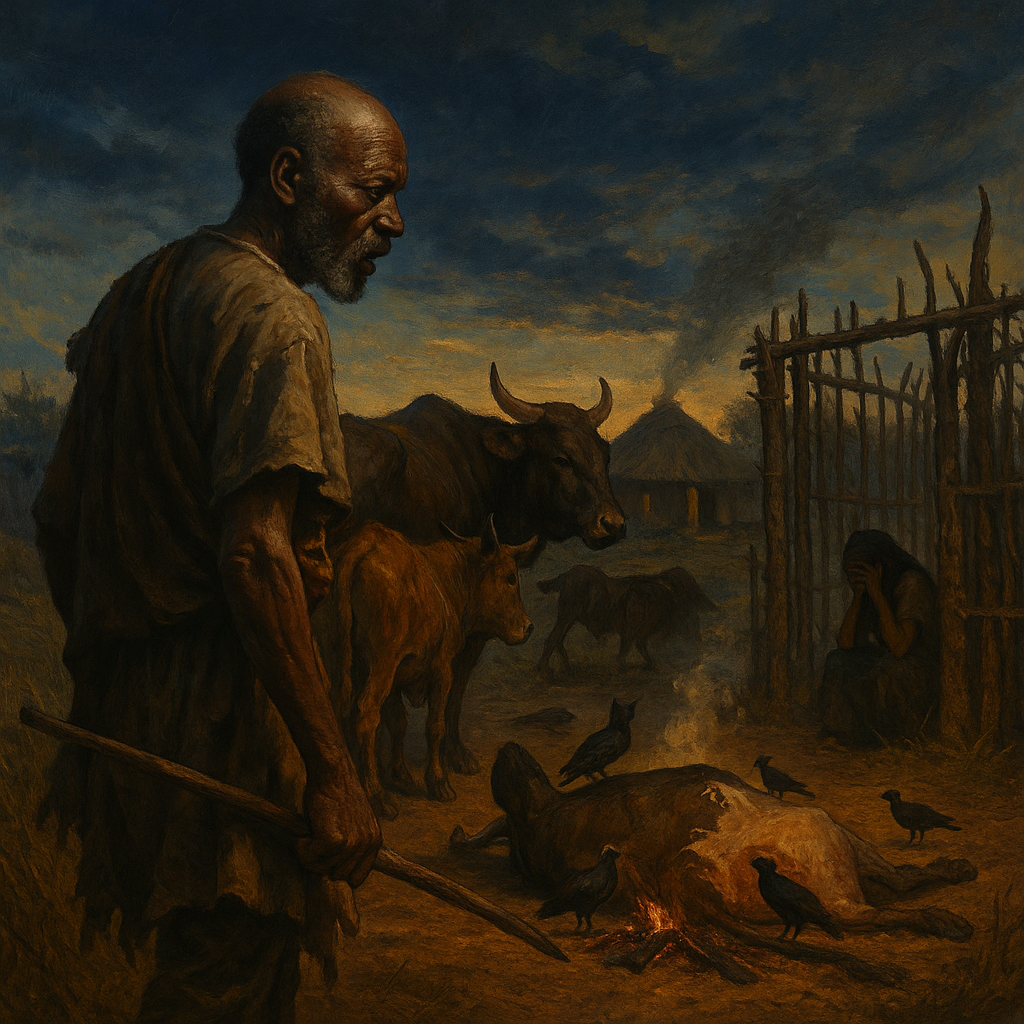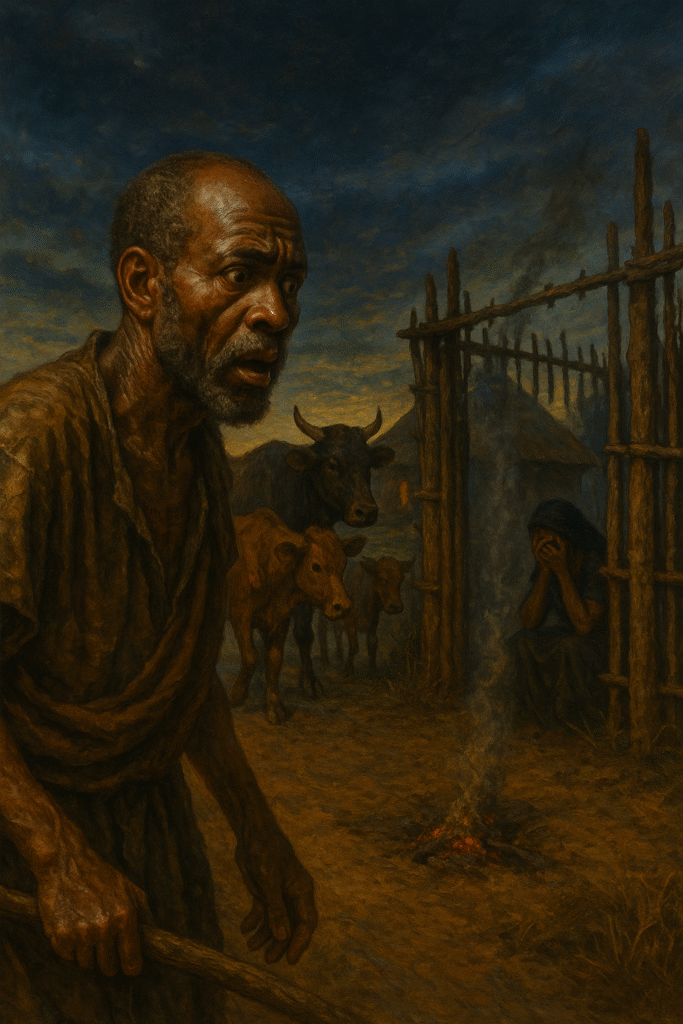THERE WAS ONCE a certain man called Hate-to-Be-Contradicted, and because of that, he built a small settlement all by himself and went to live in it. And the creature called the duiker went to visit him, and he walked with him and sat down at the foot of a palm tree. Then some of the palm nuts fell down. The duiker said, “Father Hate-to-Be-Contradicted, your palm nuts are ripe.”
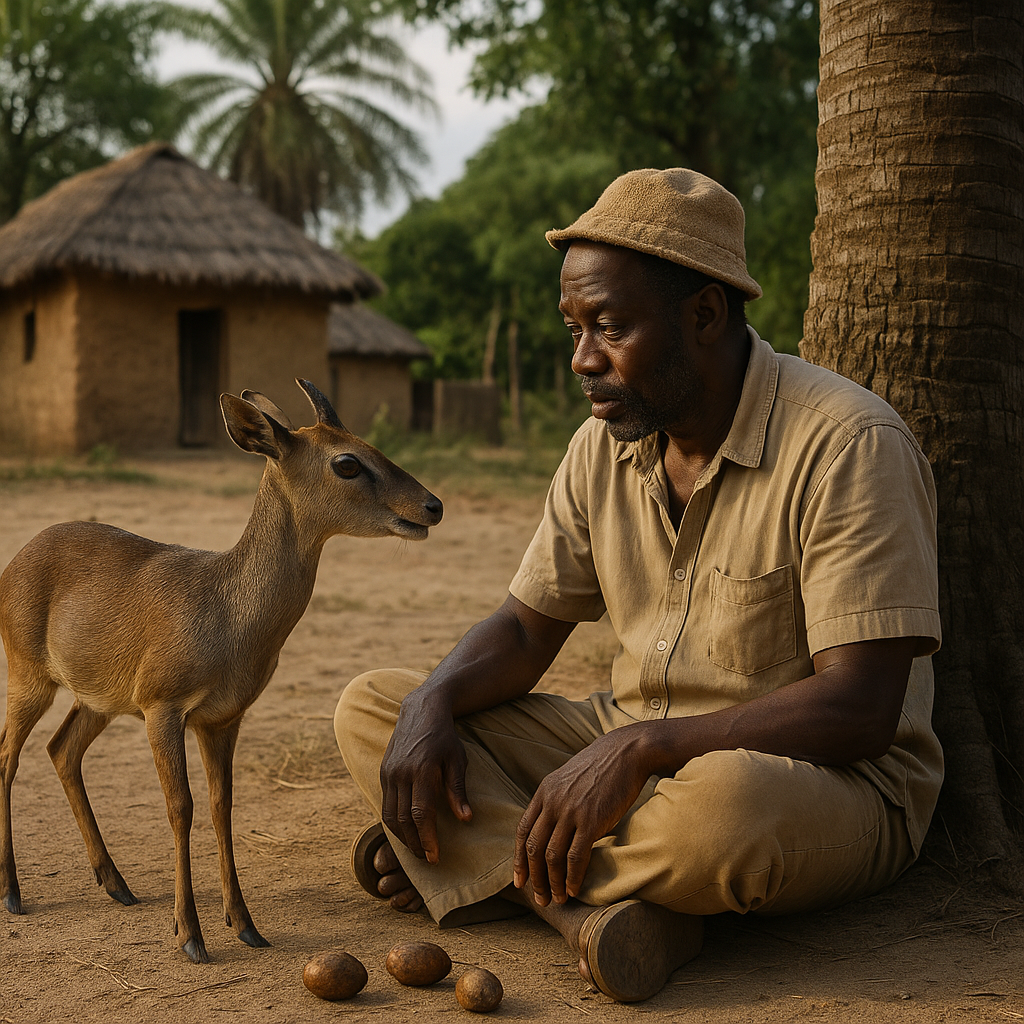
Hate-to-Be-Contradicted said, “That is the nature of the palm nut. When they are ripe, three bunches ripen at once. When they are ripe, I cut them down; and when I boil them to extract the oil, they make three water-pots full of oil. Then I take the oil to Bantu to buy an Bantu old woman. The Bantu old woman comes and gives birth to my grandmother who bears my mother who, in turn, bears me. When Mother bears me, I am already standing there.”
The duiker said, “As for that, you lie.”
And Hate-to-Be-Contradicted took a stick and hit the duiker on the head, and killed it.
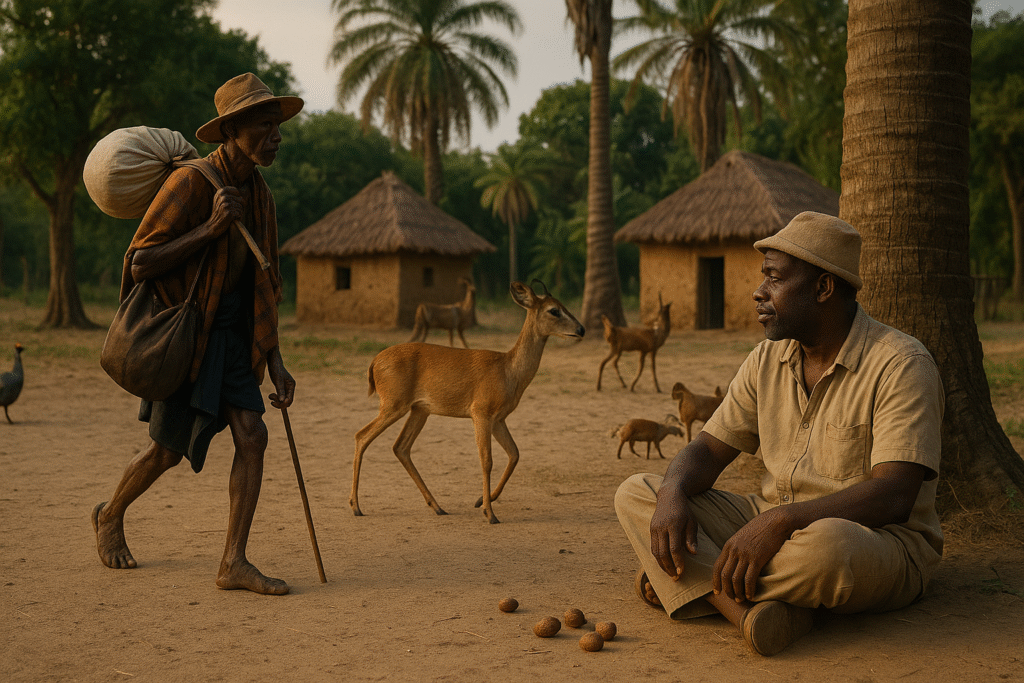
Next the little antelope came along. Hate-to-Be-contradicted went off with it and sat under the palm tree, and the same thing happened. And thus it was with all the animals. Finally, the spider, went and fetched his cloth and his bag, slung the bag across his shoulders, and went off to visit Hate-to-Be-Contradicted’s kraal. He greeted him: “Father, good morning.”
Hate-to-Be-Contradicted replied, “Y’aku, and where are you going?”
He replied, “I am coming to visit you.”
And he took his stool and placed it under the palm tree.
Hate-to-Be-Contradicted said, “Cook food for the spider to eat.”
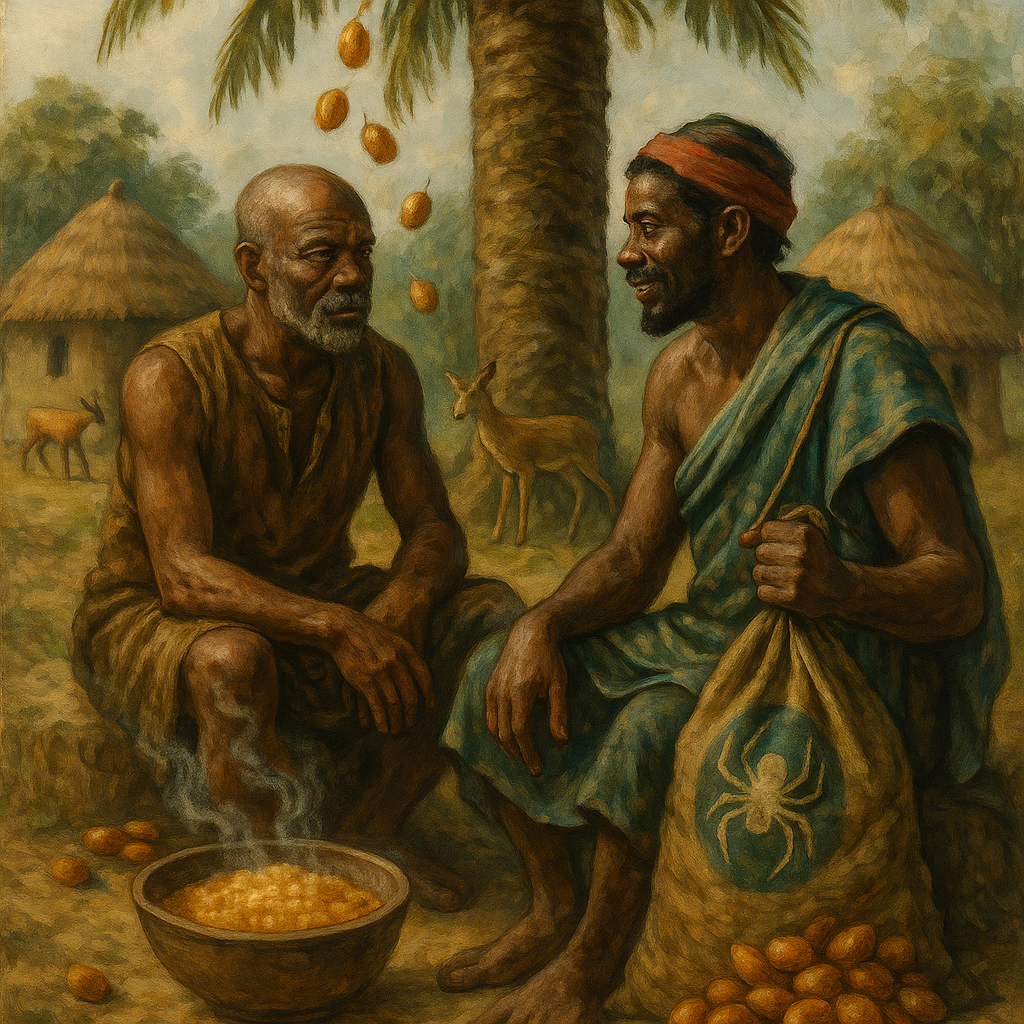
And while it was cooking, Spider and Hate-to-Be-Contradicted sat under the palm tree. Some of the palm nuts fell down, and Spider took them and placed them in a bag. This he continued to do until his bag was full. The food was brought, and Spider Ate. When he had finished eating, some of the ripe palm nuts again fell down, and Spider said, “Father Hate-to-Be-Contradicted, your palm nuts are ripe.”
Hate-to-Be-Contradicted said, “It’s their nature to ripen like that; when they are ripe. When they are ripe I cut them down, and when I boil them to extract the oil, they make three water-pots full of oil and I take the oil to Ashanti to buy an Ashanti old woman.. The Ashanti old woman comes and gives birth to my grandmother who beats my mother so that she in turn beat me. When Mother beats me. I am already standing there.”
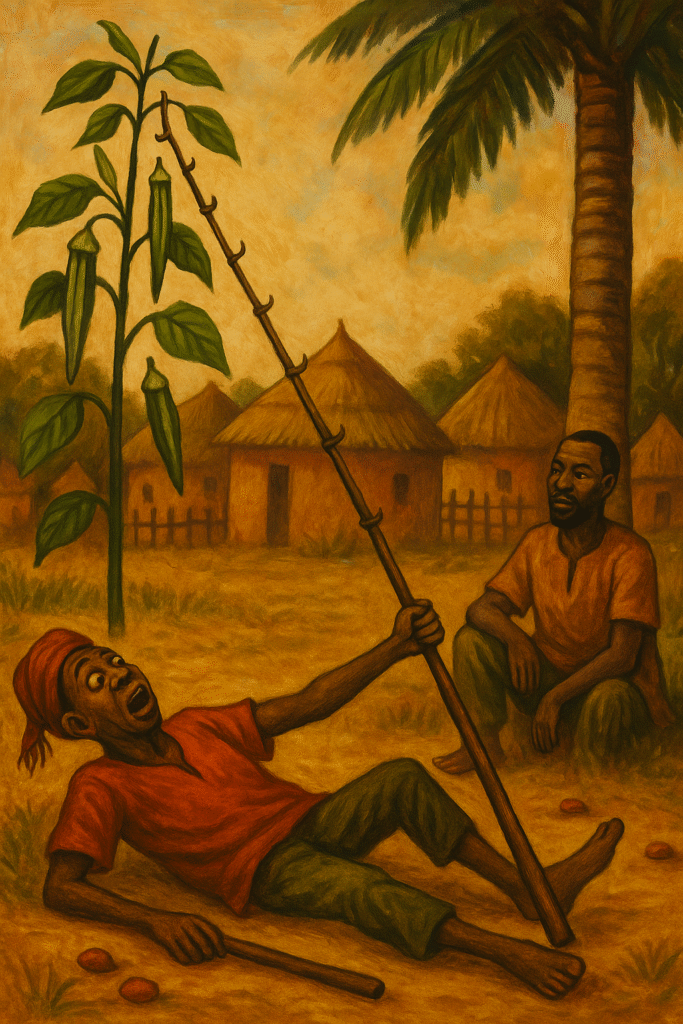
The Spider said, “You do not lie. What you say is true. As for me, I have some okras standing in my farm. When they are ripe, I join seventy-seven long hooked poles in order to reach them to poles them down, but even then I cannot reach them. So I lie on my back, and am able to use my penis to pluck them.”
Hate-to-Be-Contradicted said, “Oh, I understand. Tomorrow I shall come and look.”
The Spider said, “Surely.”
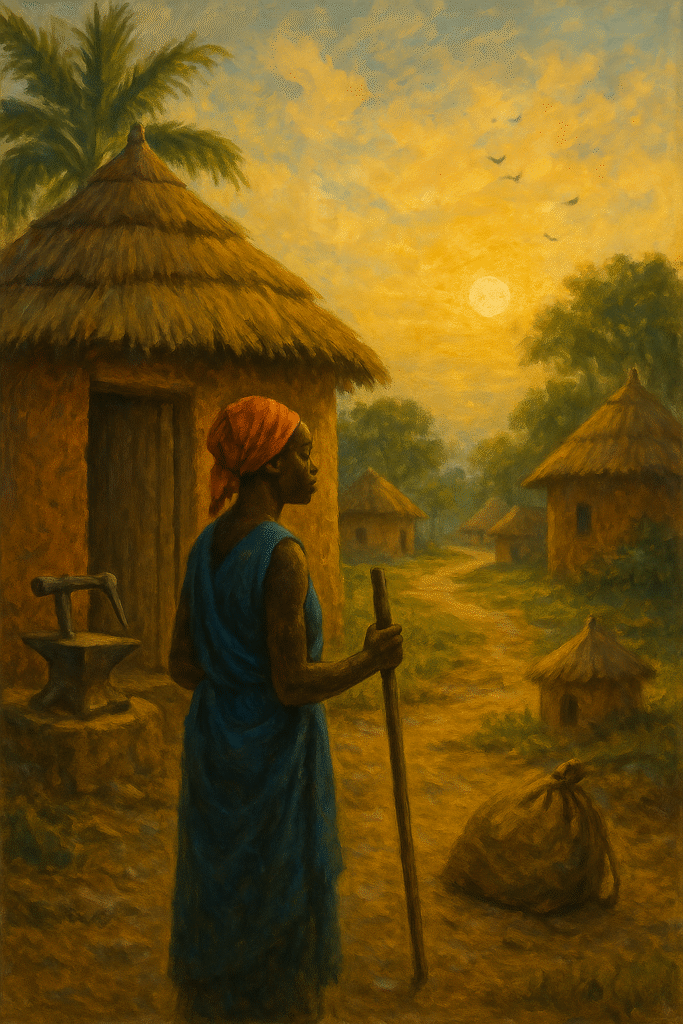
While the spider was going home, he chewed the palm nuts which he had gathered and spat them out on the path. The next morning, when things began to be visible, Hate-to-Be-contradicted set out to go to the spider’s village. Now when the spider had arrived home the day before, he had gone and said to his children, “A certain man will come here who hates to be contradicted, and when he arrives and inquires for me, you must tell him that yesterday I had to take it to a blacksmith to be repaired and, as the blacksmith could not finish it at the time, I have now gone to have the work finished.”
Not long afterward Hate-to-Be-Contradicted came along. He said, “Where has your father gone?”
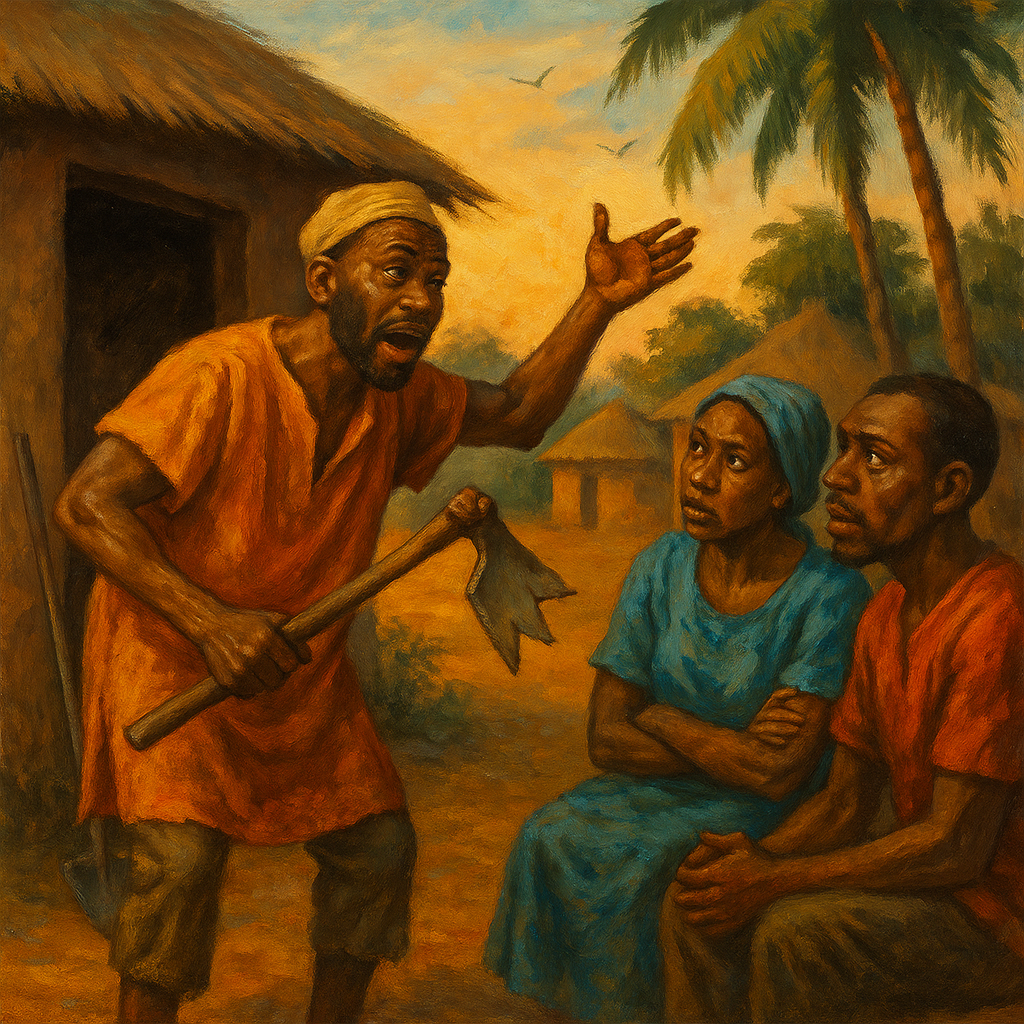
They replied, “Alas, Father went somewhere yesterday, and his penis got broken in seven different places. So he took it to a blacksmith, but he could not finish the job at the time, and Father has gone to have it completed. You, father, did you not see the blood on the path.”
Hate-to-Be-Contradicted said, “Yes, I saw it.” He then asked, “And where is your mother?”
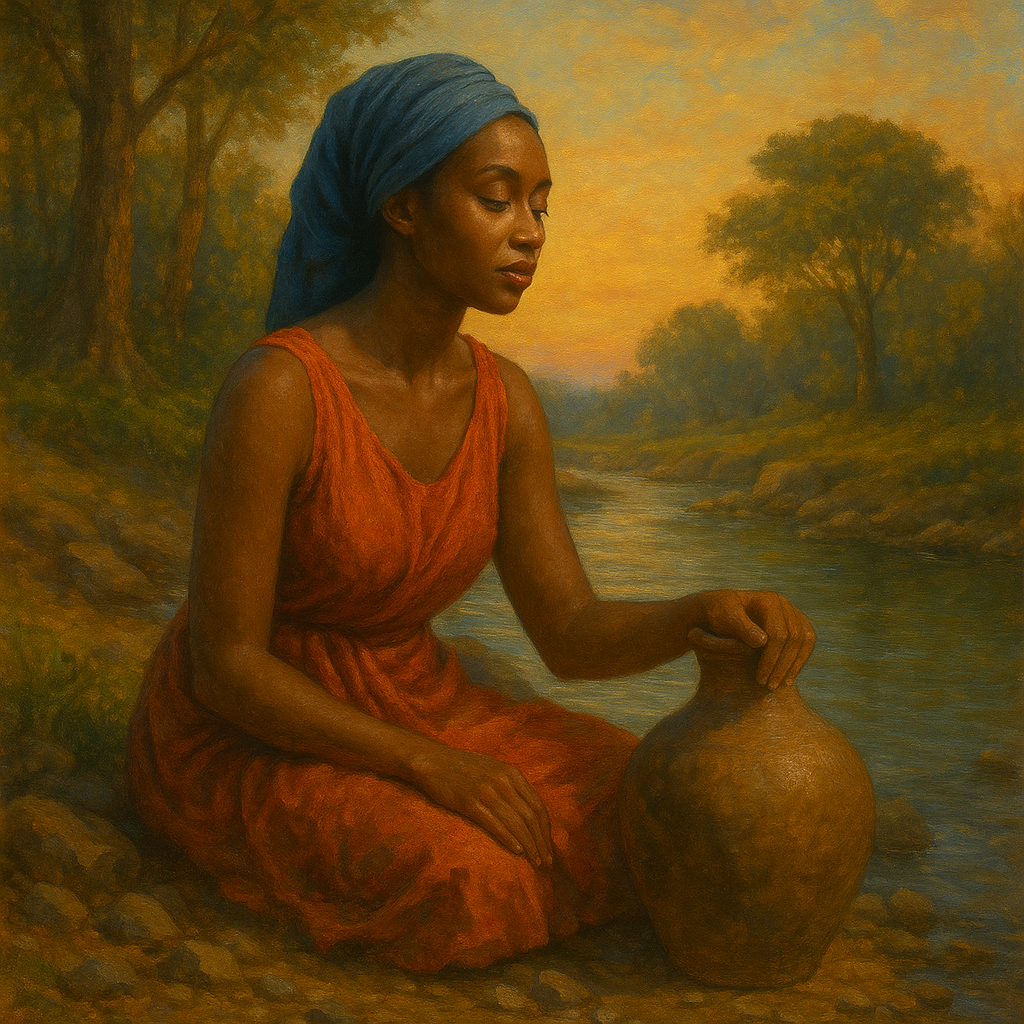
The spider’s child replied, “Mother, too – yesterday she went to the stream, and her water-pot would have fallen and broken had she not saved it from doing so by just catching at it in time. But she didn’t quite finish saving it from falling and has returned today to do so.” Hate-to-Be-contradicted did not say anything.
Now Spider arrived. He said, “Cook some food that Hate-to-Be-Contradicted may eat.” As the children were cooking the food, they used only one single little perch but an immense quantity of peppers. They made the soup-stew very hot. When they had finished, they set it down before Hate-to-Be-Contradicted. Hate-to-Be-Contradicted ate. Now the peppers pained him; he wanted to die. He said to one of Spider’s sons, Kanfari, where is that water?”
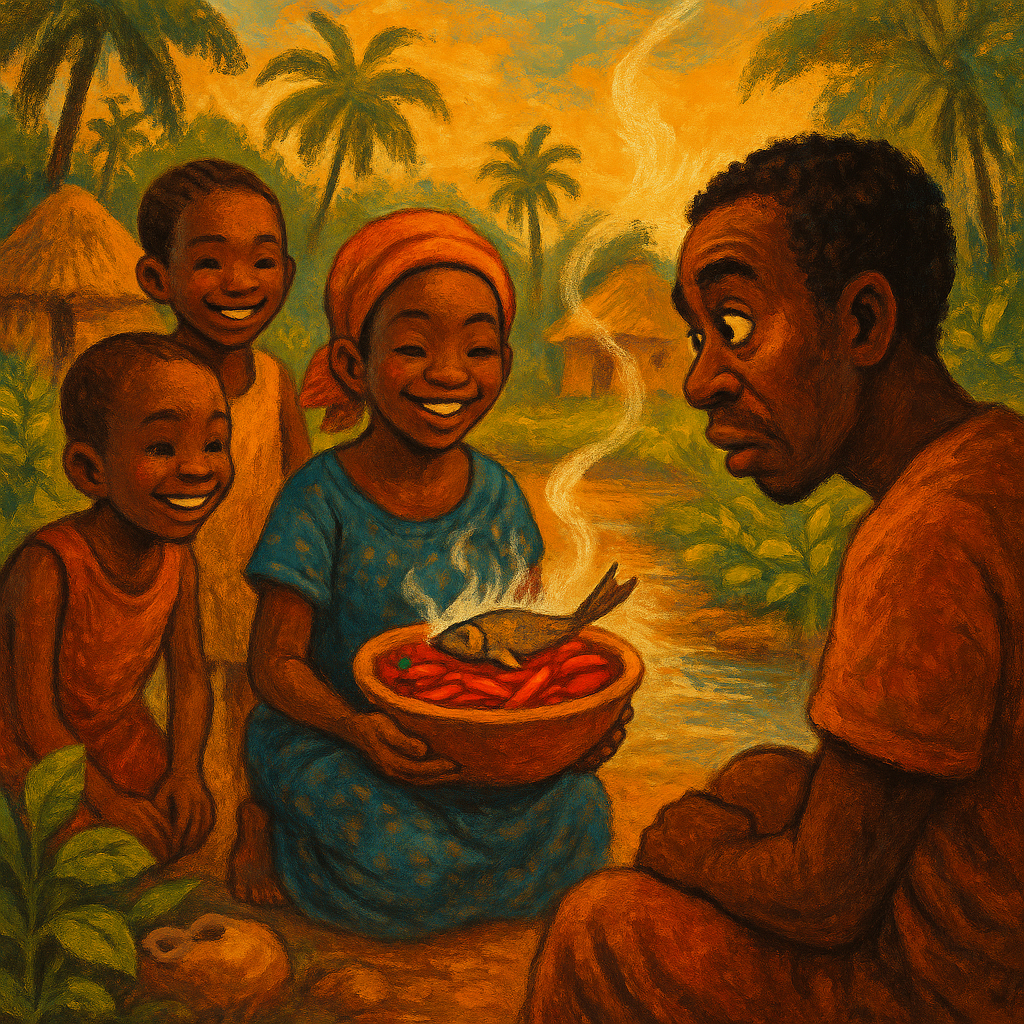
Kanfari said, “Ah, the water which we have here in our water-pot is of three different kinds. That belonging to Father comes first, that of mother’s co-wife is in the middle, and that belonging to my mother is at the bottom of the pot. I must draw for you only the water belonging to my own mother and if i do not take great care when drawing it, it will cause a tribal dispute.”
Hate-to-Be-Contradicted said, “You little brat, you lie.”
Straightway Spider said, “Beat him so that he dies.”
Hate-to-be-Contradicted said, “Why should they beat me so that I may die?”
The spider said, “You say you hate to be contradicted, and yet you have contradicted some one. That is why I say they must beat you so that you may die.’
So they beat Hate-to-be-contradicted until he died. The Spider cut up his flesh in little pieces and scattered them all about.
That is why many persons who hate to be contradicted are to be found in the tribe today.
[ ASHANTI ]
